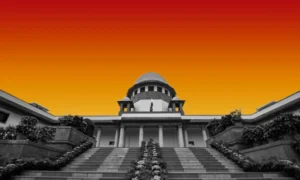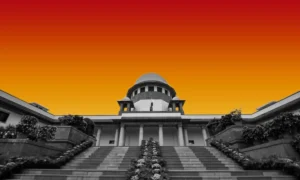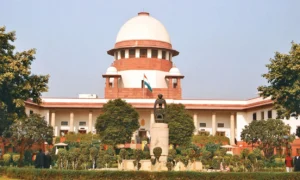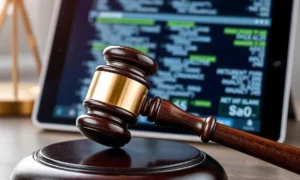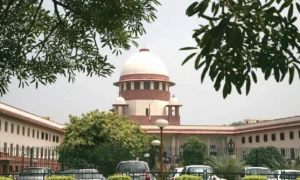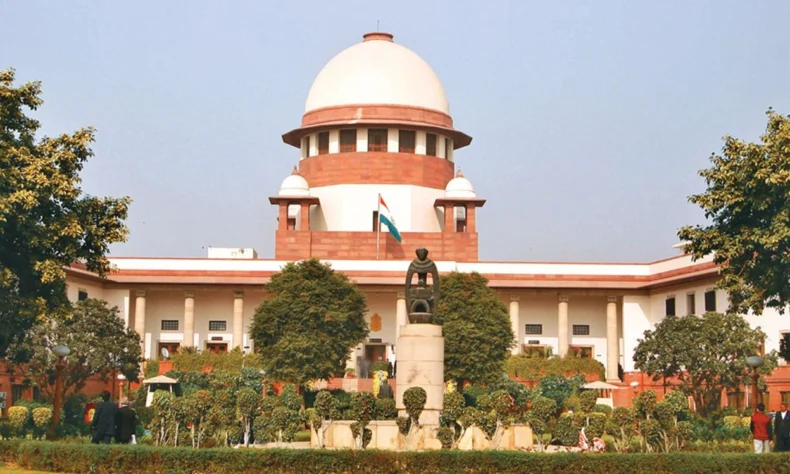
The Supreme Court on Thursday ruled that constitutional courts could not prescribe mandatory timelines for the President or State Governors while exercising their powers on granting, withholding, or reserving Bills for consideration under Articles 200 and 201.
The Constitution Bench of Chief Justice of India BR Gavai, Justice Surya Kant, Justice Vikram Nath, Justice PS Narasimha and Justice AS Chandurkar said the framers of Articles 200 and 201 had consciously refrained from prescribing rigid timelines, opting instead for constitutional flexibility given the complexities of federal governance and legislative processes.
It further held that neither the Supreme Court nor High Courts may direct the President or Governors to decide within a fixed time frame, save that they may, only in cases of prolonged, unexplained, or obstructionist non-action, issue a limited mandamus directing the constitutional authority to discharge its constitutional function within a reasonable period, without entering into the merits of the Bill or its constitutional desirability. The Bench clarified that while the actions of the President and Governors enjoy immunity under Article 361, the institutional office remains subject to judicial scrutiny to the limited extent necessary to prevent constitutional paralysis or the frustration of legislative will.
It further refused to create a ‘deemed assent’ mechanism, wherein assent would be presumed upon expiry of a court-mandated period on the grounds that this would constitute an impermissible judicial assumption of executive functions and also violate the doctrine of separation of powers.
The top court of the country passed the order after conducting extensive hearings on a Presidential Reference arising in the aftermath of its judgment in the 2025 case—State of Tamil Nadu vs. Governor of Tamil Nadu. The previous verdict had judicially fixed time limits for constitutional authorities to act on Bills and had gone so far as to treat certain pending Bills as having received “deemed assent”. In revisiting that position, the Supreme Court observed that transforming constitutional silence into judicially enforceable deadlines would amount to rewriting the constitutional text and unsettling the balance of powers between the Legislature, Executive and Judiciary. It pointed out that the constitutional design permits the President and Governors to apply their discretion in assessing legislative validity, possible repugnancy with Union law, and the implications of Articles 254 and 74 before taking a final decision, and such deliberation should not be judicially compressed through externally imposed timelines.
Addressing the President’s powers under Article 201, the Court held that the same constitutional reasoning applies. The President was not subject to mandatory judicial timelines when considering Bills reserved by Governors and was not required to seek the Supreme Court’s advisory opinion under Article 143 in every instance.
The Court clarified that such a reference remained purely discretionary and was warranted only where a substantial question of constitutional interpretation arises. The Bench also categorically rejected the earlier judicial approach of invoking Article 142 to confer deemed assent on pending Bills. It held that Article 142 does not empower the judiciary to override or substitute constitutionally assigned executive functions.
Conferring assent judicially would amount to a substitution of the executive’s constitutional role, intrude into a domain reserved for the President and Governors, and breach the separation of powers fundamental to the constitutional scheme. Such a deemed assent mechanism was therefore held unconstitutional. On the question of justiciability, the Court reaffirmed that judicial review does not extend to examining the merits of a Governor’s or President’s satisfaction under Articles 200 and 201.
However, such review is permissible when constitutional authorities effectively paralyse legislative processes through indefinite, unexplained or obstructionist inaction. The Court reiterated that Bills themselves may be challenged only after they mature into law, and pre-enactment judicial interference with legislative content remains impermissible. The advisory proceedings saw extensive submissions from the Union Government, multiple States including Tamil Nadu, Kerala, Punjab, Maharashtra, West Bengal and Karnataka, as well as senior counsel. Throughout the hearings, the Court stressed the necessity of preserving federal comity and ensuring that representative institutions are not rendered ineffective through prolonged executive non-action.
While Governors are not mere ceremonial assenting authorities, the Constitution equally does not permit unilateral executive power to obstruct legislative functioning through inertia. The decision, which is expected to influence future federal disputes involving gubernatorial delays, reinforces constitutional federalism, democratic accountability, institutional boundaries and the judiciary’s role as a constitutional sentinel.
The Apex Court concluded that courts may intervene only to prevent constitutional breakdown, not to direct how executive authorities should exercise their constitutional functions or to impose timelines absent from the constitutional text
📰 Crime Today News is proudly sponsored by DRYFRUIT & CO – A Brand by eFabby Global LLC
Design & Developed by Yes Mom Hosting

